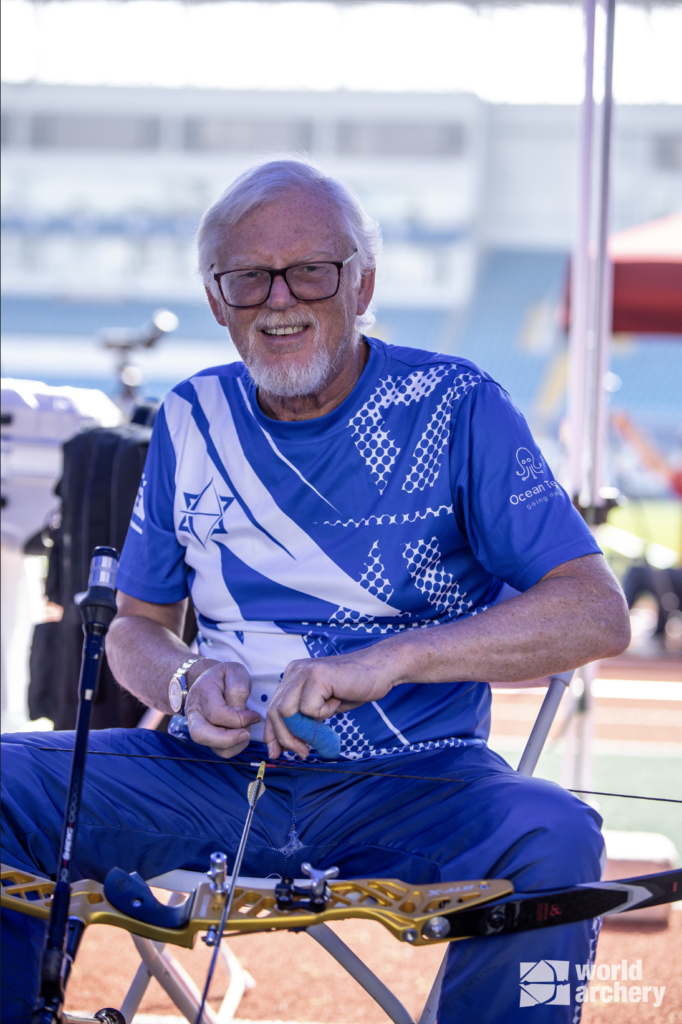by Kristina Dolgilevica
Bow meets with WA’s Coach of the Year
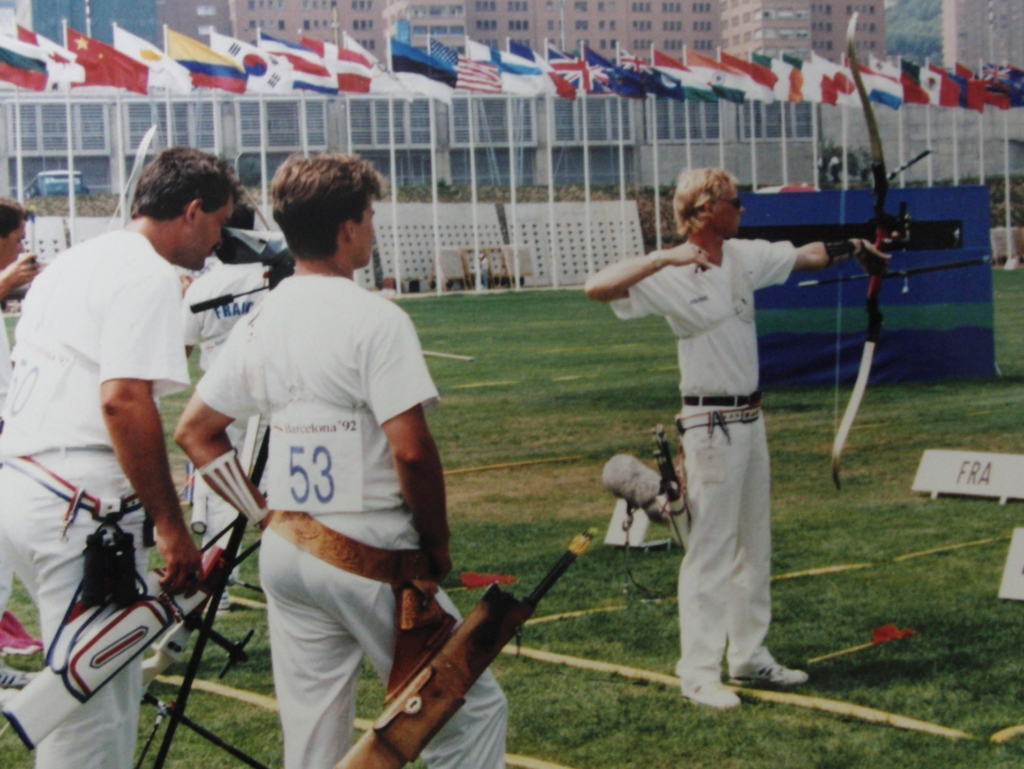
Richard Priestman turned 68this year. For those of you who don’t know, Richard is one of the world’s most experienced top level archery coaches, who has worked in most countries in the world. A native of Liverpool, Richard Priestman comes from an archery family. By his own admission, Richard never had natural talent for archery, and only really started to enjoy the sport once he started earning medals. As competitive archer, Richard represented GB and earned two team event Olympic bronze medals, at Seoul 1988 and Barcelona 1992.
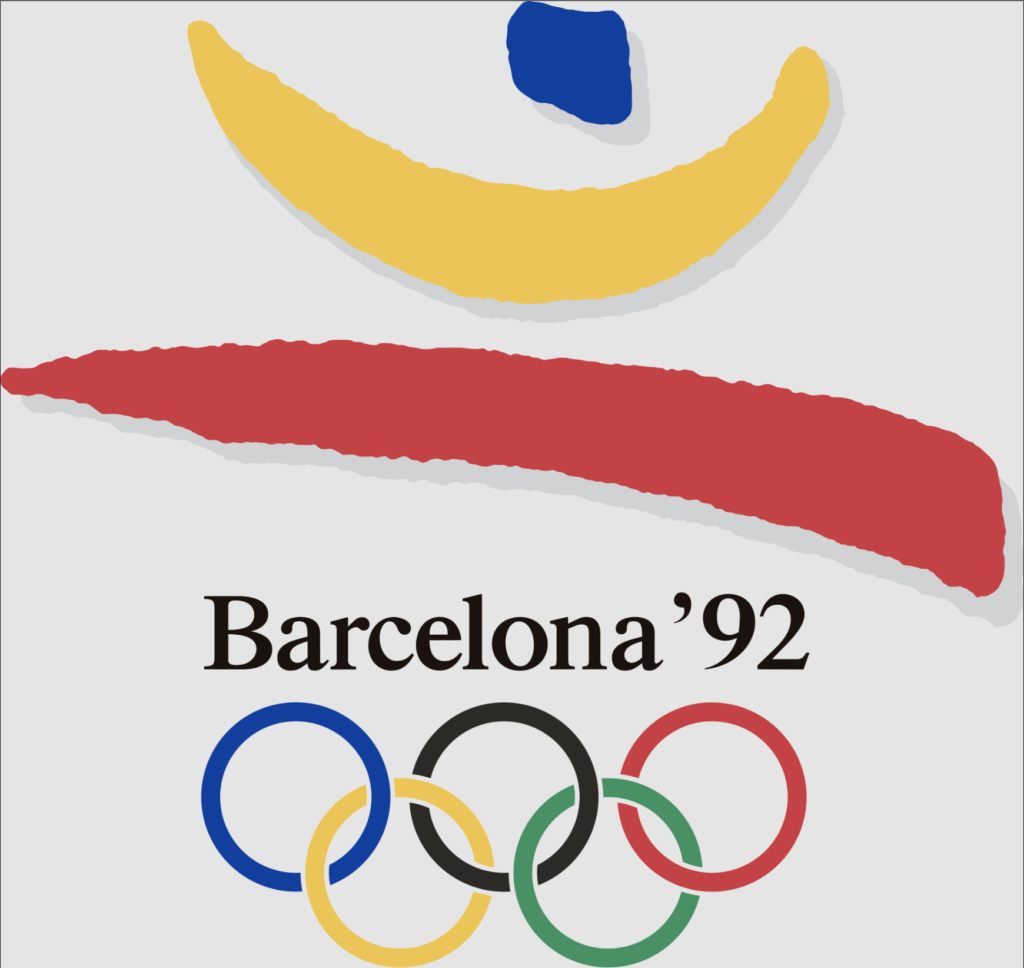
In 2022, Richard took up a post as Head coach for Team Israel, where he currently resides.
We sat down to talk to Richard on his birthday; the interview is dedicated to the subject of talent, one of Richard’s key interests – talent and talent-hunting.
Part I will look at defining what is talent, and who has it.
How does talent hunting happen?
The interesting thing is that most of my coaching has been with the archers that have already been talent-hunted. I have mostly worked at the top end, with teams that are competing internationally, where there is a demand and a desire to win medals. That’s different from going around countries and finding talent. I have never had the luxury of teaching or searching for talent, it has always been there for me.
Most countries don’t do the talent hunting, randomly coming across kids and teenagers who turn up in archery clubs. And if these young people show some kind of promise or interest, they find their way into some kind of talent squad, or a national team. It’s really quite random.
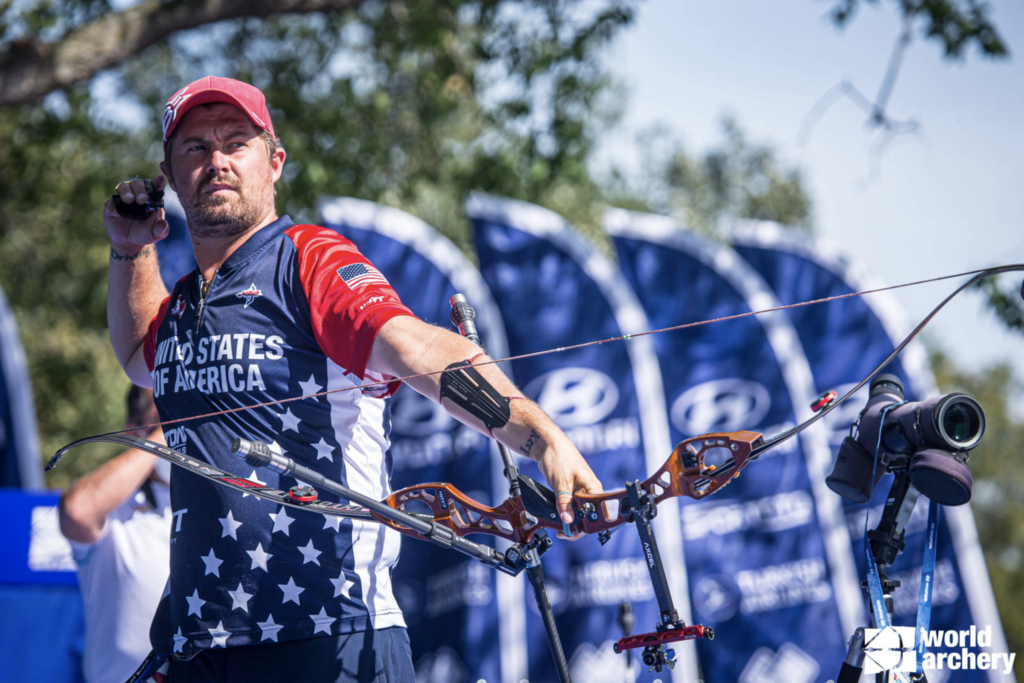
But with some countries, talent-hunting is more of a challenge, especially if you are trying to find talent to become future national team members and Olympians. Asia is more national team and elite based, but the Western world has more of a club structure. The challenge in somewhere like GB is that you are talent-hunting in the clubs with recreational archers, and it is the same here in Israel. There is no culture in the West to go and hunt for talent in schools either, there just isn’t any system for that.
How do you know an archer has a talent?
Speaking to coaches from around the world, including Korea, USA, the UK, France, and Germany, the answer you always get from any coach is, “We just know when they have talent. You just see it.”. If I went to a youth club or a scout camp, or a school, and if I got them to try archery, immediately I would see two or three who could be archers. You just know. I am not aware of any countries that have any particular science behind it yet. However, there are some positive steps, and it is the professional end of the sport that drives that. You hear of numbers in Korea, and they have somewhere around a thousand of 8–11-year-olds trying out the sport every year. That is a massive number and, of course, you will find the six for your national team out of those. Whereas in the UK, there is a tier of sports that the kids will go through before they end up in archery. Talented boys, for example will go into football first; if they don’t make the team, they will go to the cricket team; and if they don’t make that, they turn to rugby or hockey and so on. Eventually, having failed to make those teams, they will come down to archery. Then it is down to the coach to try and make something out of this person, who kind of wants to do the sport, but might not have the skills to succeed. Archery is a sport that they can potentially excel at, and it is interesting that we can make Olympians from people who have, basically, failed at many different sports.
How do you define talent? Is it innate or acquired?
I should start by saying that there is nothing particularly natural about shooting a bow and arrow. It is a closed skill, which means that everything we do as archers can be learned.
It is desirable for an archer to have the ability to listen to instruction, to learn the instruction. As a closed skill, it has a beginning, a middle and an end. Once the archer learns a good process, and achieves a nice-looking technique, it has to be backed up by a mindset that will ensure that that process always happens.
There aren’t that many natural talents for archery, but you can speed up the learning process if you have some transferrable skills from past experiences, or if you have something natural within you.
Archers do not need to have great endurance skills or great strength, we do not need them to be particularly athletic, and that is not a negative. There are a lot of things we do not need to be because it is such an unusual sport – it is asymmetric for one. Archery is a cerebral sport, where physicality and mobility can be trained. It is helpful if you can come into the sport with good hand-eye coordination, with good focus and concentration skills, but all of that can also be learned.
What kind of mindset is desirable for these archers?
‘Get it right the first time’ kind of mindset, a mindset to reset when they mess up. Archers who have a fear of messing up, ones that worry about outcome, will always ultimately fail, unfortunately. There is a lot of mental skill that is part of talent. It’s that ‘why not’ attitude, ‘let’s go for it’, ‘let’s try it’. This is why archery is good for many kinds of people who might not be naturally wanting to do a team sport, running around the field. To be a top first class international takes a special kind of person. If I am looking for that talent, I want the person to really want to do archery, I want to get them addicted to archery. It is a crazily difficult sport to master, it requires many, many, many hours of training, of repetition. The mindset to get somebody to do two-three-hour session twice a day, six days a week, that’s takes a special kind of person. As coaches we do need to give them praise and tell them they have talent – ‘come do archery, I will teach you how to be really good’, definitely.
However, often perceived talent, it doesn’t really show itself until a moderate amount of practice and training, because many can get good at archery, but can they really be a winner? You often see that later on. The archers that advance are the ones that get it right the first time, and we can only, really, teach them to be a winning Olympian if they want it. Who is daft enough, ambitious enough, relentless enough to go for it? It is a massive commitment to a sport that is not going to make you rich.
Characteristics you look for in archers, and ones you are not so keen on
In archery you have to juggle a lot of skills. We have a difficult process to learn, and we need to be good at decision making. You find a lot of archers who are dedicated, committed, who can do a great shot process, and train really hard; but when it comes to making decisions in a competition scenario, they fail because they can’t make a decision quick enough. They are allowing mistakes to happen, rather than getting it right the first time. It is hard to teach decision-making.
It is about getting away from that outcome-thinking, which for most archers is, ‘I want this to be a 10!’, ‘I dream it’s going to be a 10!’, or ‘I’m going to mess up!’, along with other external thoughts about outcome. For some archers, three 10s can become a negative, so their next arrow is a 4 or a miss. That type of thinking is not a good quality for a winner. Positive or negative score outcome should not affect the archer emotionally; the emotional side is the hardest to deal with, but it is trainable. There are too many archers who are terrified of competition, but if you can find the ones who can shoot without any fear of messing up, that’s a really good quality. That’s a quality I look for.
If they are not prepared to work hard, if they consider themselves to be good when they are not, that’s undesirable. And, of course, what is considered to be ‘good’ varies from country to country. For example, if I am a 660 (point) shooter in GB, I am considered to be good. If I am a 660 shooter in Korea, I have no self-worth, I will never make the team, I have no desire, no ambition, I’m nowhere near ‘good enough’.
Who do you consider to be the most talented archer of all time?
That’s a really hard question, because we see archers out there who shoot great scores. Are they shooting those scores because they were talented from the beginning, or is it because they were hard workers? Simon Terry is an archer from a previous generation, he is someone I was a competitor with. He was an incredibly talented person, who could do many sports, was well coordinated, he could do anything to a high standard. He did great, went away for 13 years, came back and did even better at it. He did not have a great technique, but he had a great ability to hit 10 a lot. His brain was great for archery, and he won lots of medals.
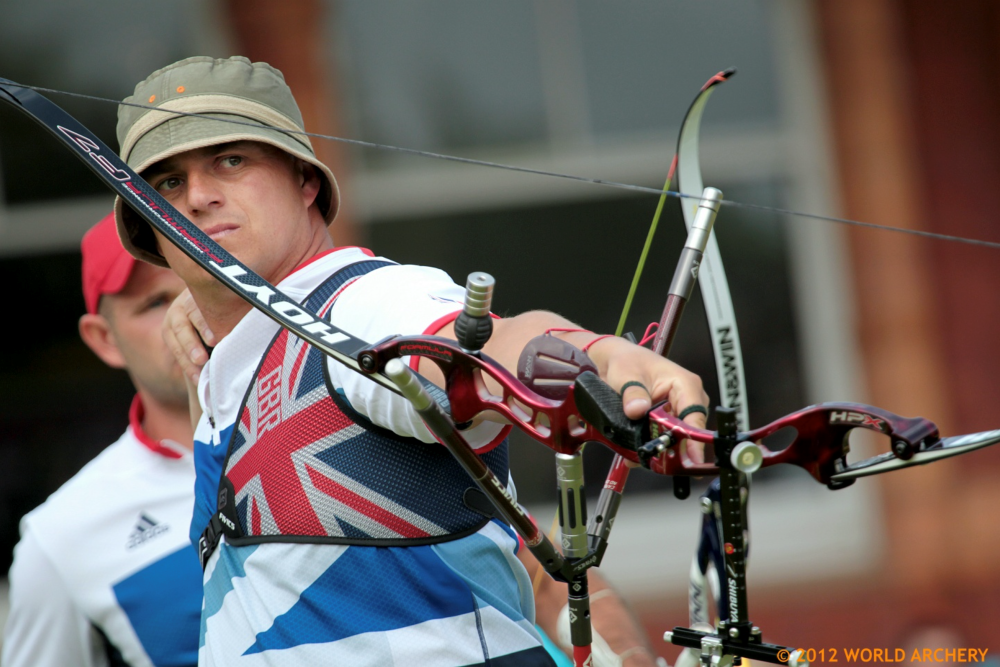
Look at Brady Ellison, he was a good archer since he was a teenager. He was good at compound, switched to recurve, and was immediately good at recurve; he can transition from one to another with ease. If his physical fitness changes, he remains a good archer.
I worked behind the scenes in Colombia, though I have never worked with Sara Lopez as a coach directly, I was fortunate to witness her winning a World Cup as a teenager; it was only after that you could see she had a great talent. She is the top woman compound, but she continues to want to be better. She had a natural aptitude from the very start, and she is a hard worker.
And, I am, of course, really impressed with Mike Schloesser, who was also good from his teenage years. I don’t think I have ever seen him not shoot a 10. His technique is awkward, it is difficult, but it works, and he does have the ability to shoot those 10s.
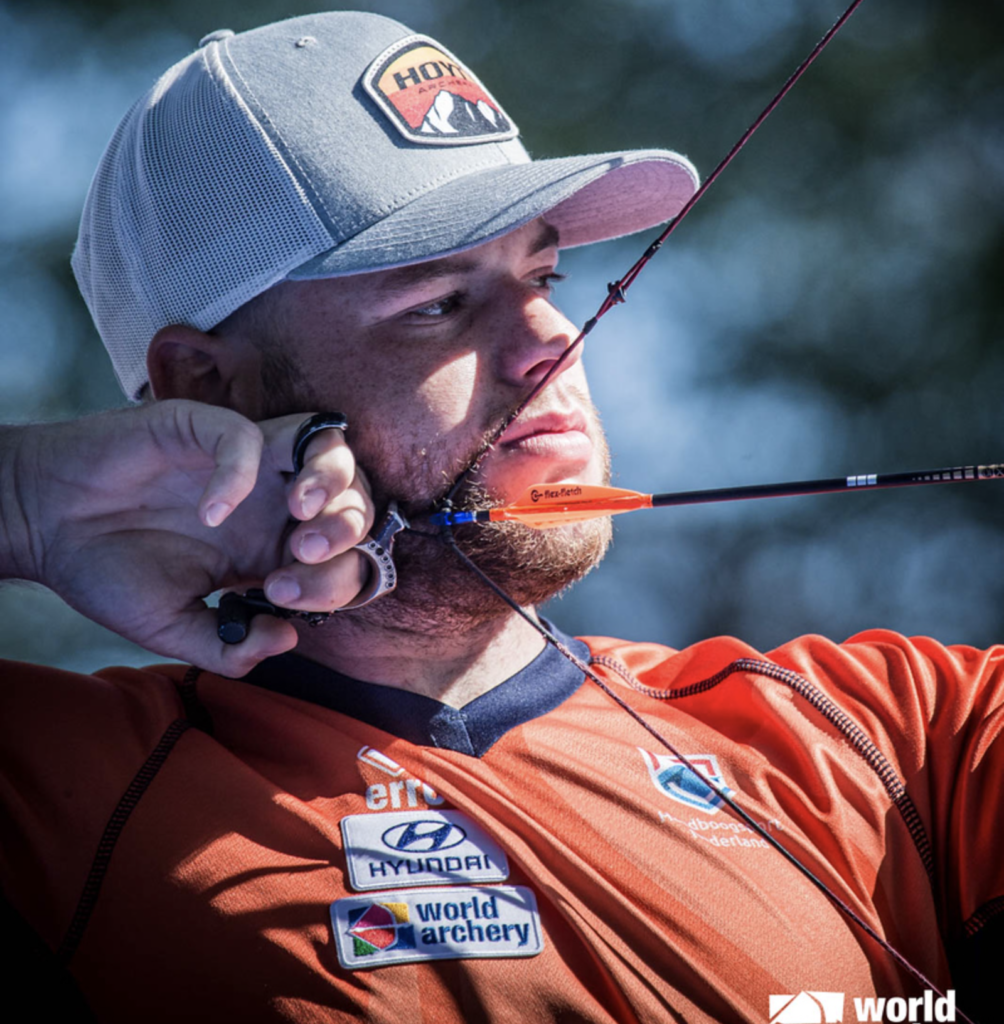
(29), Netherlands (World Archery)
The archer I am most amazed with today is Oliver Hicks, shooting barebow. He is just a teenager and hits the 10 with barebow a ridiculous number of times without a clicker. Again, he had that talent from when he picked up the bow for the first time. Impressive maturity and focus.
For female recurves – every Korean I have ever seen. They have an incredible hard-working system, and many do not come through it, but the ones that get to the top, are unbelievably good. Are they finding it from talent or the hard work? There is definitely the hard work, when they are shooting 700-2000 a week, when they are teenagers. I am not sure that Korea is seeing talent as a big thing, it is more about finding those who can go through that system, and come out unharmed, in a way.
